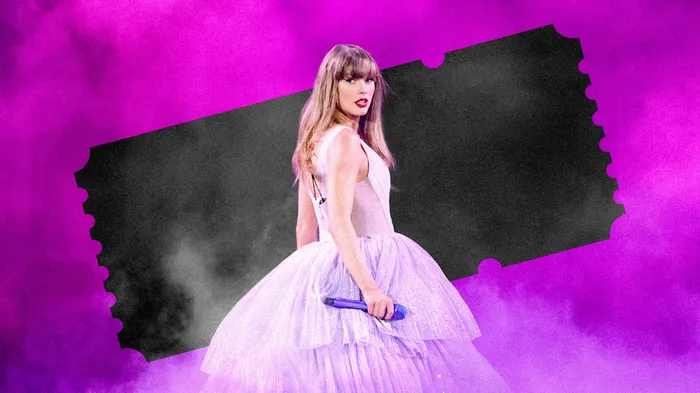
Taylor Swift.
Image: Kevin Mazur/TAS24/Getty Images for TAS Rights Management, comicsans/Adobe Stock
We’re on the other side of Taylor Swift’s Eras Tour now, but the landmark 149-show world tour’s rollout was plagued by bots, resellers, and spiking ticket prices that left many unhappy fans empty-handed. Now, we know a little more about how all of that went down.
The Eras Tour was big money, no matter how you slice it. The tour inspired expensive geopolitical manoeuvring in Southeast Asia, gave some sluggish American local economies a shot in the arm, and drove $261 million in box office sales after the fact. For unscrupulous resellers, it was a massive payday.
According to a new lawsuit from the Federal Trade Commission filed on Monday, one elaborate ticket reselling scheme flooded Ticketmaster with an army of fake accounts, buying up sought-after tickets for live shows like Swift’s Eras Tour.
The lawsuit alleges that Key Investment Group, a ticket broker based in Maryland, used fake accounts to bypass Ticketmaster’s security measures and the company’s limits on ticket purchases. The FTC believes that the reseller operated “thousands” of Ticketmaster accounts—many of which it paid to purchase—and relied on a combination of virtual credit card numbers, IP spoofing, and SIM card fraud to execute the purchases.
According to the complaint, the group was able to buy “at least” 379,776 tickets over the course of a single year, paying almost $57 million for the trove. By reselling the tickets on secondary markets for heavy markups, the scheme netted at least $64 million in sales.
For a single Eras Tour show at Nevada’s Allegiant Stadium, the reselling group bought 273 tickets using 49 different accounts, selling them for a total of $119,227, the FTC alleges. Swift’s tour enforced a strict six-ticket limit in place for each show.
The company allegedly purchased at least 10 tickets to each Taylor Swift concert from March to August 2023, making $1.2 million in profit from reselling the 2,280 tickets. Sketchy ticket flipping practices like the ones in the new FTC complaint run afoul of the Better Online Ticket Sales (BOTS) Act, a 2016 law enacted to prevent ticket resellers from buying up tickets and manipulating prices.
While Swift’s concerts likely proved the most lucrative, the reselling scheme cast a wide net that included buying up more than 1,500 tickets to a Bruce Springsteen show at MetLife Stadium in New Jersey.
“Today’s action puts brokers on notice that the Trump-Vance FTC will police operations that unlawfully circumvent ticket sellers’ purchase limits, ensuring that consumers have an opportunity to buy tickets at fair prices,” FTC Chairman Andrew N. Ferguson said.
News of the ticket reselling crackdown comes a week after Swift announced a new album, The Life of a Showgirl, expected in October. The pop superstar announced her new music on New Heights, a podcast hosted by Swift’s boyfriend, Kansas City Chiefs tight end Travis Kelce, and his brother, former Philadelphia Eagles centre Jason Kelce.
The album will be the first in a true new era for Swift. In May, she successfully purchased the master recordings of her first six albums, a struggle that took years to pull off. Swift bought the original recordings from Shamrock Capital, a private equity firm that ended up with them after music manager Scooter Braun offloaded the recordings for at least $300 million.
“I’ve been bursting into tears of joy at random intervals ever since I found out that this is really happening,” Swift said at the time. “I really get to say these words: All of the music I’ve ever made . . . now belongs . . . to me.”
Swift’s new album will be the first since her 2024 release, The Tortured Poets Department, which smashed streaming records and set a new high bar for the most vinyl albums ever sold within a single week.
ABOUT THE AUTHOR
Taylor Hatmaker is a writer and photographer based on the West Coast. She was previously a Senior Editor at TechCrunch, where she specialised in social media, gaming and online culture.
